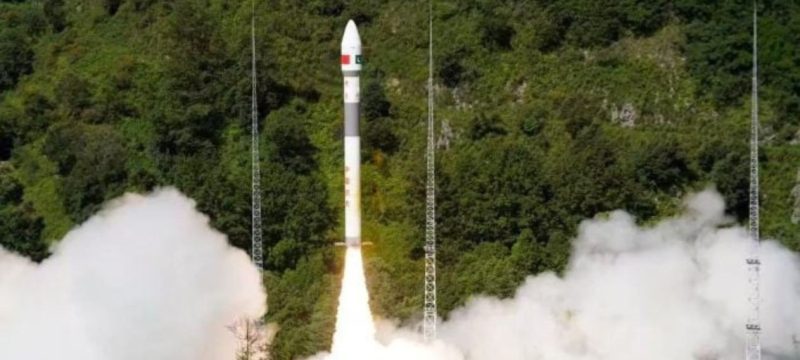On Thursday, Pakistan made a significant advancement in space technology with the successful launch of its new Remote Sensing Satellite. The satellite was launched from the Xichang Satellite Launch Center in China, as announced by the Pakistan Space and Upper Atmosphere Research Commission (SUPARCO).
The launch marks a major step forward for Pakistan’s space program, positioning the country to benefit from new technological capabilities.
The newly-launched Remote Sensing Satellite successfully entered its designated orbit, joining Pakistan’s growing space fleet. This includes the PRSS-1, launched in 2018, and the fully indigenous EO-1, which is set to launch in January 2025.
The satellite will support various critical applications, such as precision agriculture, land use management, environmental monitoring, urban planning, and disaster mitigation.
Equipped with advanced sensors, the satellite will enable real-time monitoring of natural disasters, including floods, landslides, glacier melt, earthquakes, and deforestation.
Additionally, it will provide vital data for infrastructure projects, particularly those related to the China-Pakistan Economic Corridor (CPEC), helping to assess geohazard risks, map transportation routes, and guide sustainable development.
This milestone also highlights the growing maturity of Pakistan’s space program, which has evolved significantly over the past decade. The journey began in 2011 with the launch of PakSat-1R, a communications satellite developed in collaboration with China.
This was followed by the PakTES-1A and PRSS-1, laying the groundwork for the country’s Earth observation and remote sensing capabilities.
Ahsan Iqbal, the Federal Minister for Planning, Development, and Special Initiatives, congratulated the nation on the successful launch. He called it a crucial milestone in Pakistan’s space program, noting that it would bolster the country’s self-reliance in space technology.
Iqbal emphasized Pakistan’s ambition to reclaim its leadership role in space, with plans for sending a Pakistani astronaut into space next year and completing a lunar mission by 2035.
The launch of the Remote Sensing Satellite reflects the country’s commitment to advancing its space capabilities and driving innovation in several critical sectors.
Also Read: Punjab Launches Satellite-Based Thermal Imaging for Enhanced Forest Monitoring





